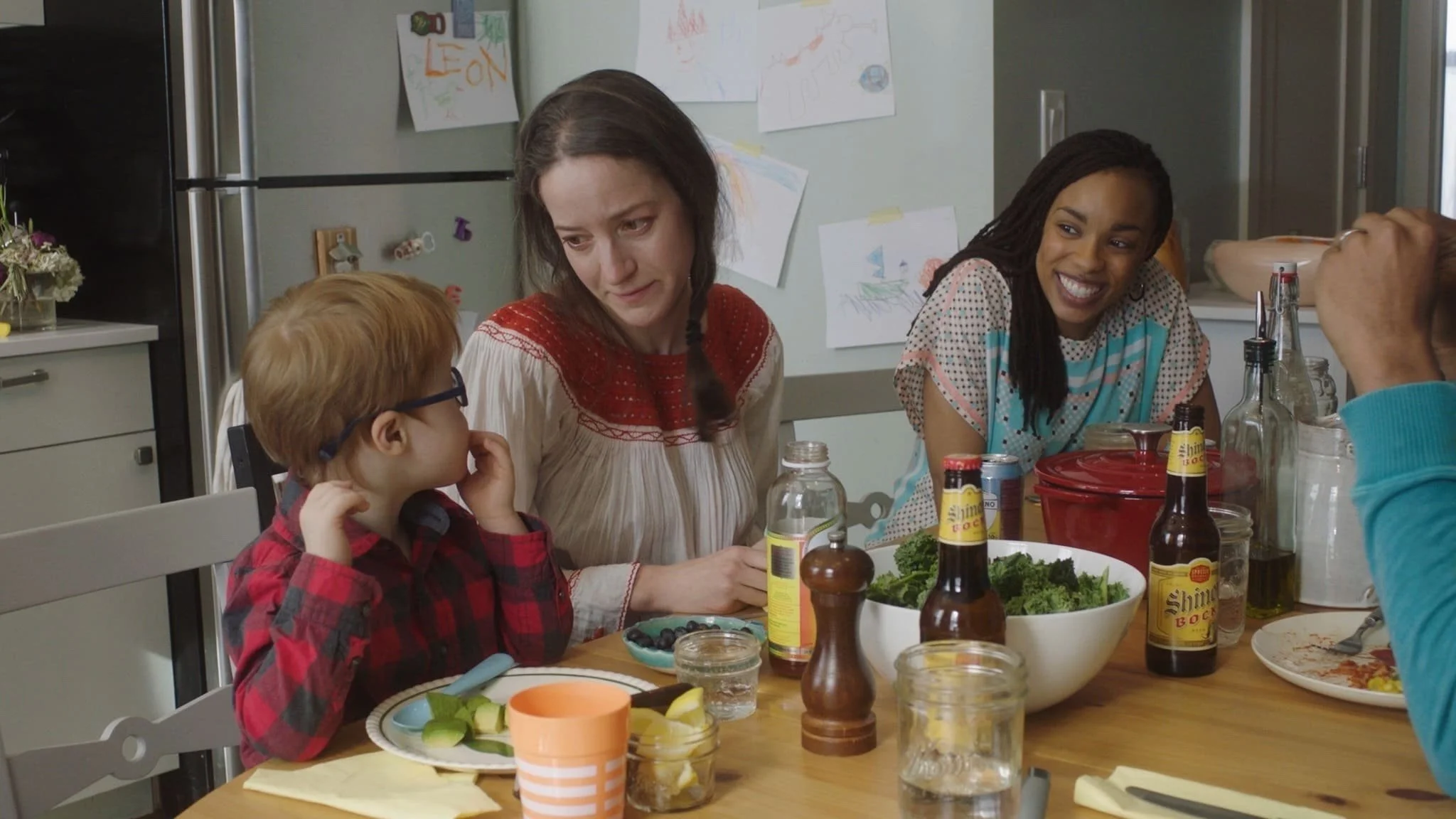The Surrogate
Jeremy Hersh's thought-provoking LGBT drama establishes the new writer-director as a talent to watch.
This first feature by the American writer/director Jeremy Hersh has remarkable qualities and deserves attention even if, in my eyes at least, it also falls short in certain respects. Hersh is a gay filmmaker who is commendably keen to avoid making films that follow standard themes in that line of cinema. Indeed, although two of the main characters in The Surrogate are gay - Josh played by Chris Perfetti and his African American husband, Aaron, played by Sullivan Jones - the central character is Jess, a friend of theirs who, having known Josh for years, has agreed to become a surrogate mother in order to enable the couple to have a child. The role of Jess finds Jasmine Batchelor making her debut and she gives what will surely be one of the best performances by an actress this year. Like Stephen Cone, whose Princess Cyd recently reached us belatedly, Hersh is a man with a remarkable ability to draw detailed portraits of women that ring absolutely true. Indeed, if Jess, also an African American, is the driving force in this film, there are also notable female figures among the subsidiary roles. Two actresses stand out here, Tonya Pinkins playing the mother of Jess and Brooke Bloom as Bridget, a woman whom Jess befriends.
Although the quality of both the writing and the acting of these female roles is exceptional, so too is another feature of The Surrogate. The drama unfolds when an early test reveals that the child will be born with Down’s syndrome. This shock discovery upturns the situation for all of them. Until then everyone had been happy with the situation and had looked forward to the birth, but now the issue that confronts them is that of a possible abortion. Faced with the restrictive burden of looking after such a child, Josh and Aaron understandably come to favour this as a solution, but Jess as the mother finds it harder to come to a decision. For her there is the whole question of whether or not abortion is inherently abhorrent, especially if taking such a step due to disability can be seen as akin to eugenics. However, despite having intended that the child should be brought up by Josh and Aaron, Jess may feel that she should have the baby and then bring it up herself as a single mother. But in that event she could well find both her own life and that of the child adversely affected by attitudes prevalent in a society that views single mothers with disdain especially if they happen to be black.
The fact that all these issues come together unforced in The Surrogate adds to the richness of the film, but what also makes it special is the attitude that Hersh brings to it. He is always compassionate towards his characters but, no less importantly, he sets out not to argue a case or to take sides but to allow the viewer to recognise the complexity of the situation and the fact that the choice, whatever it turns out to be, is bound to have a tragic dimension.
Making the audience understand the viewpoints of all concerned and refusing to dictate what their response should be gives real stature to The Surrogate. These qualities could lead to Hersh giving us a masterpiece one day, but here two factors get in the way. One is the imbalance that results due to the film being so dependent on talk. It is, to be sure, good talk to the extent that the people seem real rather than mouthpieces, but it does prevent the film from feeling like a true work of cinema. As I understand it, this is a film original but it doesn’t play like one. Not least when it reaches a climactic scene of lengthy debate one can imagine this as a great piece of theatre. Earlier, Hersh often provides much shorter scenes, but even that suggests someone seeking to disguise the fact that this is not the ideal medium for the material. In these passages some scenes end very abruptly and others don’t seem to earn their place: the result is a lack of true cinematic flow. It’s not impossible that Hersh would be more at home in the theatre. Nevertheless, these doubts do not prevent me from recognising the very substantial merits of The Surrogate: the achievement for Hersh lies in his deeply considered approach to complex subject matter and for the cast it is to be found in the quality of the performances. Certainly Jasmine Batchelor’s debut in the lead role should not be missed.
MANSEL STIMPSON
Cast: Jasmine Batchelor, Chris Perfetti, Sullivan Jones, Brooke Bloom, Leon Lewis, Tonya Pinkins, Brandon Michael Hall, Eboni Booth, Meg Gibson, William DeMeritt, Purva Bedi, Leon Addison Brown.
Dir Jeremy Hersh, Pro Jonathan Blitstein, Julie Christeas and Taylor Hess, Screenplay Jeremy Hersh, Ph Mia Cioffi Henry, Pro Des D’Vaughn Agu, Ed Cecilia Delgado, Costumes Lauren Tanchum.
Tandem Pictures/Resonant Pictures-Studio Soho Distribution.
93 mins. USA. 2020. Rel: 9 July 2021. Cert. 15.


